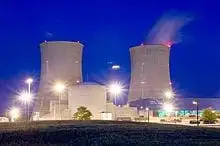Government of Canada Invests in the Future of Work in Today's Rapidly Changing Electricity Sector

NFPA 70b Training - Electrical Maintenance
Our customized live online or in‑person group training can be delivered to your staff at your location.

- Live Online
- 12 hours Instructor-led
- Group Training Available
EHRC National Occupational Standards accelerate workforce readiness for smart grids, renewable energy, digitalization, and automation, aligning skills, reskilling, upskilling across the electricity sector with a career portal, labour market insights, and emerging jobs.
Key Points
Industry benchmarks from EHRC defining skills, training, and competencies for Canada's evolving electricity workforce.
✅ Aligns skills to smart grids, renewable energy, and automation
✅ Supports reskilling, upskilling, and career pathways
✅ Informs employers with labour market intelligence
Smart grids, renewable electricity generation, automation, carbon capture and storage, and electric vehicles are transforming the traditional electricity industry. Technological innovation is reshaping and reinventing the skills and occupations required to support the electrical grid of the 21st century, even as pandemic-related grid warnings underscore resilience needs.
Canada has been a global leader in embracing and capitalizing on drivers of disruption and will continue to navigate the rapidly changing landscape of electricity by rethinking and reshaping traditional occupational standards and skills profiles.
In an effort to proactively address the needs of our current and future labour market, building on regional efforts like Nova Scotia energy training to enhance participation, Electricity Human Resources Canada (EHRC) is pleased to announce the launch of funding for the new National Occupational Standards (NOS) and Career Portal project. This project will explore the transformational impact of technology, digitalization and innovation on the changing nature of work in the sector.
Through this research a total of 15 National Occupational Standards and Essential Skills Profiles will be revised or developed to better prepare jobseekers, including young Canadians interested in electricity to transition into the electricity sector. Occupations to be covered include:
- Electrical Engineering Technician/ Technologist
- Power Protection and Control Technician/ Technologist
- Power Systems Operator
- Solar Photovoltaic Installer
- Power Station Operator
- Wind Turbine Technician
- Geothermal Heat Pump Installer
- Solar Thermal Installer
- Utilities Project Manager
- Heat Pump Designer
- Small System Designer (Solar)
- Energy Storage Technician
- Smart Grid Specialist
- 2 additional occupations TBD
The labour market intelligence gathered during the research will examine current occupations or job functions facing change or requiring re-skilling or up-skilling, including specialized courses such as arc flash training in Vancouver that bolster safety competencies, as well as entirely emerging occupations that will require specialized skills.
This project is funded in part by the Government of Canada’ Sectoral Initiative Program and supports its goal to address current and future skills shortages through the development and distribution of sector-specific labour market information.
“Canada’s workforce must evolve with the changing economy. This is critical to building the middle class and ensuring continued economic growth. Our government is committed to an evidence-based approach and is focused on helping workers to gain valuable work experience and the skills they need for a fair chance at success. By collaborating with partners like Electricity Human Resources Canada, we can ensure that we are empowering workers today, and planning for the jobs of tomorrow.” – The Honourable Patty Hajdu, Minister of Employment, Workforce Development and Labour
“By encouraging the adoption of new technologies and putting in place the appropriate support for workers, Canada can minimize both skills shortages and technological unemployment. A long-term strategic and national approach to human resource planning and training is therefore critical to ensuring that we continue to maintain the level of growth, reliability, safety and productivity in the system – with a workforce that is truly inclusive and diverse.” – Michelle Branigan, CEO, EHRC.
“The accelerated pace of change in our sector, including advancements in technology and innovation will also have a huge impact on our workforce. We need to anticipate what those impacts will be so employers, employees and job seekers alike can respond to the changing structure of the sector and future job opportunities.” – Jim Kellett, Board Chair, EHRC.
About Electricity Human Resources Canada
EHRC helps to build a better workforce by strengthening the ability of the Canadian electricity industry to meet current and future needs for a highly skilled, safety-focused, diverse and productive workforce by addressing the electrical safety knowledge gap that can lead to injuries.












